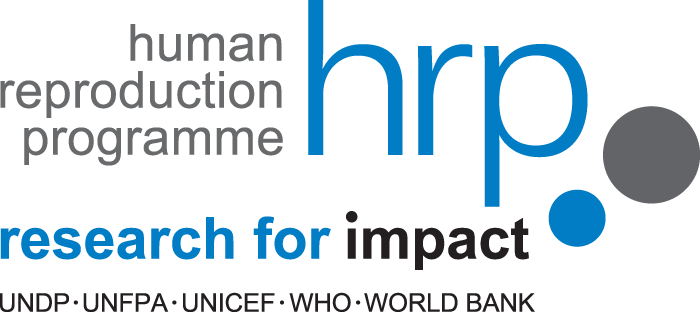About HRP
The UNDP/UNFPA/UNICEF/WHO/World Bank Special Programme of Research, Development and Research Training in Human Reproduction (HRP) transforms lives by improving and promoting sexual and reproductive health and rights worldwide. Established in 1972 by the World Health Organization, HRP became a cosponsored Special Programme in 1988 through WHA Resolution 41.9. HRP is governed through a “Memorandum on the Administrative Structure of the Special Programme” concluded between the five cosponsors: UNDP, UNFPA, UNICEF, WHO and the World Bank.
HRP is the main instrument within the United Nations system for research in human reproduction, bringing together policymakers, scientists, health care providers, consumers and community representatives to identify and address priorities for research to improve sexual and reproductive health. The work of HRP in sexual and reproductive health is based on the international agreements adopted at the International Conference on Population and Development (Cairo, 1994) and the Fourth World Conference on Women (Beijing, 1995) and their respective follow-up reviews, as well as the Millennium Development Goals adopted in 2001 and Sustainable Development Goals adopted in 2015.
The Global Abortion Policies Database is designed to strengthen global efforts to eliminate unsafe abortion by producing an interactive open-access database and repository of current abortion laws, policies, and national standards and guidelines. This tool builds upon the UNPD’s previous work in this area, resulting in a more comprehensive information resource on abortion policies in the 21st century. The database will facilitate analyses of countries’ abortion laws and policies when they are placed in the context of WHO guidelines and human rights norms and standards. It is intended to help states identify and eliminate the barriers that women encounter in accessing safe abortion services. It is also intended to increase both the transparency of abortion laws and policies and to ensure accountability for the protection of women’s health and their human rights. A description of the methods can be found here: Methods .
Please cite the Global Abortion Policies Database using the following citation: World Health Organization. Global abortion policies database. 2018. https://abortion-policies.srhr.org/. Accessed [date]


